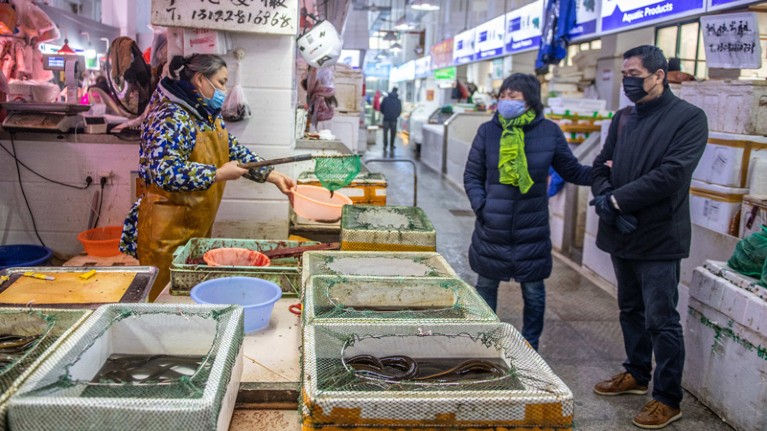
The Chinese authorities have imposed a temporary ban on the wild-food trade.Credit: Edwin Remsberg/VW Pics/Zuma Press/eyevine
The Chinese government’s temporary ban on the domestic transport and sale of wild animals following the emergence of coronavirus 2019-nCoV is welcomed by environmental non-governmental organizations pushing for a permanent ban (see go.nature.com/3b9kqcx). But China’s cultural demand for wildlife items could mean that a blanket ban would be counterproductive.
Total bans are controversial because they risk fuelling an intractable, uncontrolled and highly priced illegal trade, sustained by the rising incomes and social status of the country’s growing middle class (D. W. S. Challender et al. Front. Ecol. Environ. 17, 199–200; 2019). China’s complex culture is at the root of its demand for exotic wildlife items such as pangolin scales, tiger bones and rhino horns. Likewise, the consumption of game meat is regarded as healthy as well as an indicator of wealth. Markets selling such produce are prime candidates for passing on new viruses.
This complex issue needs to be managed through initiatives that discourage consumption, such as wisely directed education campaigns that aim to discredit engrained cultural beliefs.

 Latest news on the coronavirus
Latest news on the coronavirus
 Nature Collection: Coronavirus
Nature Collection: Coronavirus
 New virus in China requires international control effort
New virus in China requires international control effort



